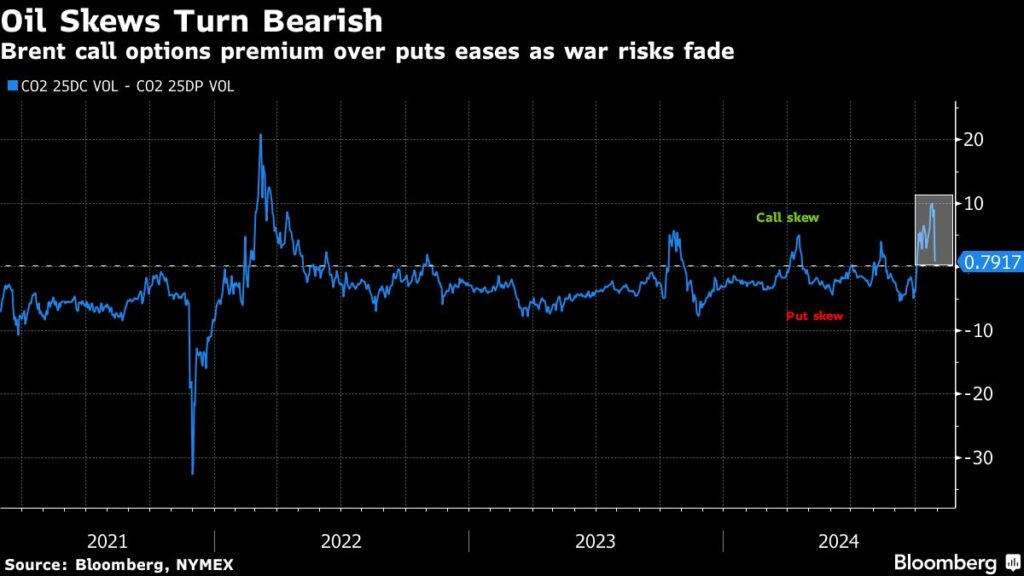Traders who heavily invested in bullish oil options are facing significant losses as a result of recent market shifts. In a surprising turn of events, crude prices dropped sharply following Israel’s decision not to target Iran’s energy infrastructure during its anticipated military response over the weekend. This decline in oil prices led to around 800,000 Brent December call options expiring worthless, highlighting a notable shift in market sentiment. It appears the urgency among traders to protect against price surges has diminished, reflecting a changing attitude toward the potential instability in the Middle East, a region critical to global oil supply.
Recent trading activity indicates that speculation surrounding the Middle Eastern conflict has primarily played out in options markets rather than futures trading. Given the inherent volatility tied to geopolitical tensions, many traders sought to hedge against potential disruptions in oil supply, especially since the Middle East accounts for about a third of the planet’s crude production. However, of the Brent contracts set to expire on Monday, less than 10% were profitable, indicating that the vast majority of about 32 million barrels of $90 and $100 call options purchased in recent weeks have become effectively worthless, leading to significant financial setbacks for those traders.
Prior to this downturn, there was a surge in bullish activity in the oil options market as traders reacted to Iran’s earlier attacks on Israel. Notably, as of the previous Friday, approximately 22 million barrels of $75 calls and nearly 53 million barrels of $80 calls were all rendered valueless by the time of expiration. This sudden collapse in options’ value corresponds with a broader market trend that suggests traders overextended their bets in anticipation of rising prices, a misstep that culminated in heavy financial losses. Despite this, some measures of potential price spikes remain, as a significant number of $100 call options for Ibrand are still active for the upcoming futures months.
Although a majority of hedges against rising oil prices have dissolved, some traders are still positioning themselves for profit. For instance, around 130,000 outstanding Brent $100 calls represent a 70% increase compared to the end of September. These options reflect ongoing interest in oil, illustrating that despite recent market declines, there are still factions holding onto hope for price hikes. Diversified approaches in trading also indicate that many players are navigating between hedging for their respective operational exposures and speculative trading on future market movements.
On Monday, traders also made a strategic move by executing over 20 million barrels of December $70 put options amidst the bearish climate of the market. This last-ditch effort to profit from falling prices showcased a changing dynamic, with the skew between bullish calls and bearish puts adjusting to a tighter range – the least skewed in nearly a month. After a period of extreme bullish sentiment, traders are now recalibrating their stances, revealing an increasingly cautious market where geopolitical uncertainties historically kept bears on the sidelines may encourage a return of bearish sentiment.
In conclusion, the current state of the oil options market serves as a poignant reminder of the risks that come with speculative trading, especially in the face of unpredictable geopolitical events. While some traders continue to seek opportunities for profit through hedging and strategic investments, the recent explosion of worthless options highlights the volatile nature of the oil market. As traders reassess their strategies in light of the shifting sentiment and pricing dynamics, the need for caution is underscored, implying that any significant rally may likely face resistance as market participants recalibrate from an overwhelmingly bullish viewpoint to a potentially more balanced or bearish outlook.

